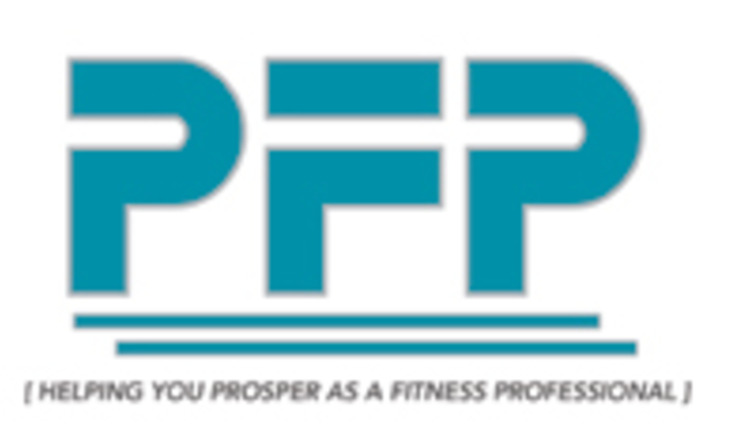Smile. Look in the mirror and smile. What do you see? Hopefully teeth. If I asked a million American adults between the ages of seven and 70 to smile at their reflections, I can accurately predict the number one answer to my "what do you see" question would be "teeth." If none of those teeth have been knocked out or pulled, those one million people would display 32 million teeth.
What do we know about teeth? They're strong, they can pack a mean bite and they have to be cared for. Teeth have to be brushed if we want to keep them strong and valuable.
Let's forget we're trainers for the moment, and let's look for an identifiable audience and a product to meet a demand. 32,000,000 teeth we can sell toothpaste!
Oh, wait a minute. That isn't exactly an original idea. We'd have to compete with Proctor & Gamble and Colgate-Palmolive, companies with billion-dollar advertising budgets. If we were truly committed to succeeding in the toothpaste business, it would be foolhardy to attempt to outsell the giants.
Enter Tom's of
"Natural toothpaste" found its niche, and Tom's experiences 20% to 25% annual growth. They're not the biggest fish in the ocean, but they've identified their own pond, a pond in which they can thrive and prosper. They capitalized on a niche.
So, am I suggesting we sell toothpaste for the fitness oriented? High-protein, cavity-fighting gel with antioxidants? No, although stranger sounding ideas have borne fruit. I'm suggesting if we're going to recognize that, as trainers, we are fitness oriented entrepreneurs who have a casual yet solid place in the American workforce, we have to consider those business strategies that "work" in other fields.
It's pretty easy to identify the niche that purrfectmatch.com, a dating service for pet lovers, effectively targets. It's also easy to see why Curves hit the market running and hasn't missed a beat. They connected with the "small pond" of deconditioned women who are uncomfortable in or have a negative perception of mainstream health clubs. When the niche is exploited, it becomes clear that what might have been a small pond in comparison to the ocean is really quite crowded with prospective customers that is.
Effective niche marketing usually involves a conventional business venture specializing and reaching into a very clear and specific niche. So now let's explore how this translates to our world.
What's a Viable Niche?
I never intentionally eavesdrop, but I couldn't help overhear a muscular man with a "Personal Trainer" shirt as he uttered to a member in the health club I was visiting, "I only train people who are serious about training. They have to be willing to sacrifice, to follow my dietary advice to the letter, and they have to be able to pass through the pain barrier. That's my niche!"
Is this trainer employing strategic positioning, is he narrowing the field and identifying a figurative small pond, or is he simply displaying the lack of a sense of true professionalism? Can this trainer be successful targeting motivated masochists?
I think I can answer the question. I struck up a conversation with him. He has two clients. They're both aspiring bodybuilders, and he trains them "on credit." They pay him $200 a month and "owe him the rest." They'll pay him when they get sponsorship contracts. My view of his "market" is not exactly a pond, but more accurately a puddle.
The pain-barrier buster may prove me wrong. Perhaps he'll wind up being a trainer of bodybuilding champions, but with an attitude of exclusion and the willingness to accept pain as a filter, I feel pretty safe in my assumption that he will never make it to the ranks of top earners, nor will he find himself a role model among professional trainers.
Before, however, we blatantly condemn his approach, let's step back and view "the big picture." He trains because he loves training, and his passion is working with those who are willing to subject themselves to grueling workouts. In other words, he's following his passion, and isn't that what we all strive to do? Isn't fitness passion what drove us all to this pursuit in the first place?
The Pros and Cons
I've read quite a bit about niche marketing. Some say it's about inventing a new way of doing things and going after a group of people who will find greater value in "your way" than in what is presently recognized as convention. Others say it's about identifying something you're good at and using your talents and skills to compel a unique market sector.
Some say niche marketing begins with a global look at the marketplace. Look at what everyone else is doing. See where there's a vast untapped market where demand is failing to meet supply or identify a market that is real but not yet targeted.
That may work for an entrepreneur driven solely by the promise of financial gain. I haven't seen it work for trainers at least not without consideration of that omnipresent fitness passion.
Don't misunderstand. I believe there is great opportunity for a fitness professional to identify a niche. I've met trainers who found their niches in training women with breast cancer. I've met trainers who found great success training high-level executives on executive fitness retreats. I even met a trainer who travels the world and is well-paid by targeting yacht captains.
While I'd like to say "what works in business works for trainers," I'd say that with reservation. There are some variables that must be considered when comparing personal training to other entrepreneurial endeavors. The idea of following your passion without clear evidence of a responsible market is risky, as is the converse.
I have never advised passion-driven trainers to initially search for a niche by studying demographics and feasibility, although those are standard operating procedures in business. I absolutely believe in positioning to create a buzz in a specific market, but the positioning has to align with that fierce and unrelenting desire we have to help people better themselves. Based on both nature and nurture, personal trainers are as diverse as the audience at the Grammy awards.
Some trainers love training "special populations" with medical challenges, and others wouldn't dare venture near a "high-risk" population. Some trainers love training executives, others perceive execs as corporate hotshots who expect someone to "do the work for them."
Targeting Your Niche
So, if we can't rely on finding our niche externally, how do we approach an effort toward harnessing a niche population? We begin a process of self-discovery, of introspection, and then we follow a step-by-step plan to assess whether our emotions align with an actual opportunity in the marketplace.
In other words, I believe the hunt for your niche is internal rather than external. That's wonderfully idealistic, but once you "identify" your preferred niche, a process of evaluation is necessary to determine whether it's going to lead you to your primary financial needs and then on to your career goals.
The first step in strategically identifying a niche that might skyrocket you to expert status requires careful evaluation of the answers to the following questions:
That takes care of the passion. That takes care of the idealistic part of the hunt. Next you have to answer some far more difficult questions the questions that help assess whether you're looking at an ocean, a pond or a puddle.
Can You Categorize Your "Ideal" into a "Market?"
Where do members of this market shop, gather or congregate? What do they read, who do they interact with and what services do they use with regularity? How can you achieve "expert" status within that marketplace?
What steps can you take to ensure contact and to ensure you have an opportunity to compel individuals who can serve as guinea pigs allowing you to prove your merit in a unique marketplace?
I know you'd like answers rather than questions, but that's a trap trainers fall into. Our diversity precludes us from maintaining a rigid set of answers, at least early on. Introspection and assessment are requirements if you're going to harness an identifiable market.
The Safety Net
Unless you have absolute clarity and a promising plan for rapid success, or unless you're independently wealthy without a financial concern in the world, I'd advise you to consider an exploration of your niche as a primary test while you establish or maintain a secure training option that provides income that allows you to comfortably take a few chances. Maintain the ability and opportunity to connect with people that may or may not fall into your target niche, and schedule time to devote to harnessing and captivating your ideal market.
If You've Made It This Far
If you've crystallized your market and identified strategies for reaching into the pond and achieving expert status, you're ready for the next steps, and unlike the primary questions, these are steps you can set in stone. They constitute the path from market identification to positive exploitation, the path to the proverbial win-win.
Find a dozen After you've infiltrated the marketplace, identify 12 individuals you feel clearly represent your target.
Focus Arrange a gathering where you can invite all 12 people to discuss beliefs and desires. A focus group is an exceptional environment for soliciting honesty and gathering information instrumental in modifying your plan. In the focus group ask questions, but avoid sharing judgment. Explore the group's perceptions of current market activity, your message, your promise and/or your guarantee
Train four Take on four clients that you feel are best suited to begin your specialized "arsenal of evidence." You want the power to prove that you can consistently deliver results in the marketplace you're committing to, and there is no greater proof than living, breathing, thrilled clients who share common traits, pursuits or interests.
Document, document, document That means assess, re-assess, evaluate, question and use words, photos, audio and video whenever possible to capture "evidence" of your power to deliver. Assemble your arsenal whether it's in the form of press releases, a portfolio, a wall of fame or a collection of audio testimonials on CD, and then market aggressively! Give it your all!
If you're willing to heed my cautions, to look inside, to reasonably assess potential and to go the extra mile, carving out a niche can be a ticket to success. Is a "niche" a necessity? No. You can certainly earn a living in the personal training mainstream, spreading your focus over the large sea of "people seeking physical change." We're lucky enough to have landed at a point in time where our nation is in desperate need and most of the solutions being offered are impotent. We have options, and your diversity, your passion and your commitment to excellence will help you refine your career and reap the rewards.
Oh, and if any reader of this magazine winds up coming out with high-protein toothpaste for fitness-wanting tooth-conscious America, please, at the very least, send me a few free samples!










